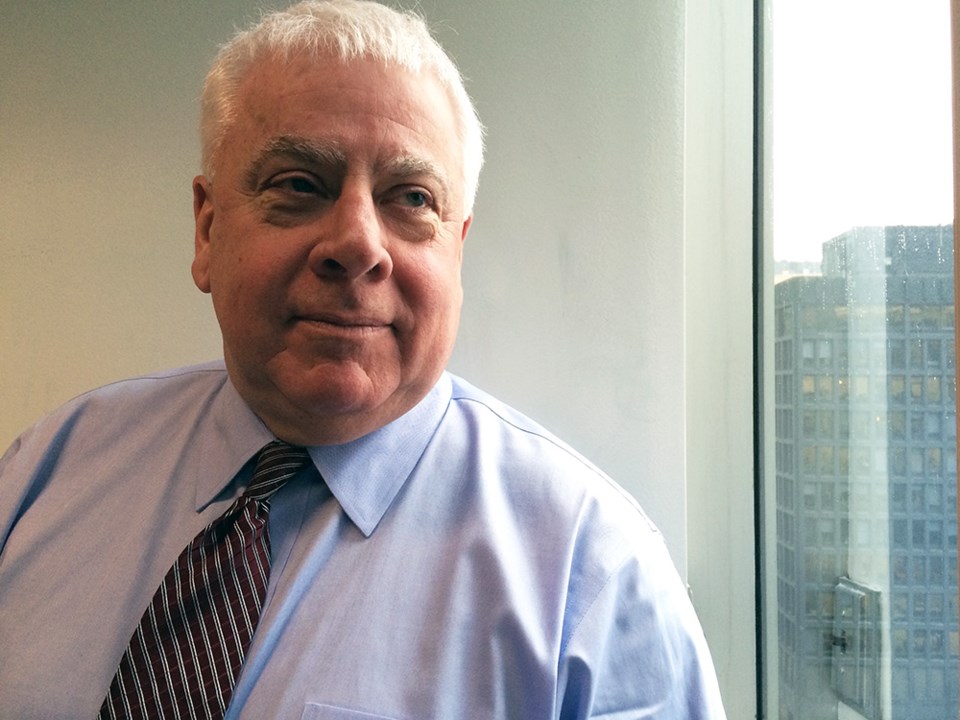The president of Kinder Morgan Canada was grilled on oil spill response recently, weeks after a tug boat diesel spill near Bella Bella.
Ian Anderson said the province needs a “geographic-based approach” to spill response along its coast in order to have more resources in more places so it can react more quickly.
“If an incident occurs, there really ends up being one thing that matters – time, speed of deployment. It’s what makes the difference between a successful operation and one that’s less successful,” he told the Greater Vancouver Board of Trade on Nov. 3
Anderson told the crowd his company plans to invest $150 million in marine spill response.
“All marine traffic will benefit from the investments that we’re making to locate five new bases along the coast, to employ over 100 new people, to invest, as I say between $100 and $200 million in boats, in booms, in training and bases like the one that you see planned for Vancouver harbour,” he said.
When asked about his meetings with local mayors, Anderson said the last time he met with Mayor Derek Corrigan was in 2011.
“I still hope at some point Derek and I will sit down and at least try and chart a path forward. Burnaby is important to us. We have a strong presence in Burnaby. We must have responsible relationships with the fire chief, with the first (responders) in that city. We must be aligned with them,” Anderson said.
One comment that created some buzz was Anderson’s thoughts on climate change. He said there’s a disagreement about the degree to which humans influence global warming.
“I’ve read the science on both sides and I don’t pretend to be smart enough to know which is right. What I do know is the broad public political view, societal view is that over time, we as a race should reduce our reliance on fossil fuels. I think that’s a given,” he said.
The federal government is expected to make a decision on the $6.8-billion project by Dec. 19.



